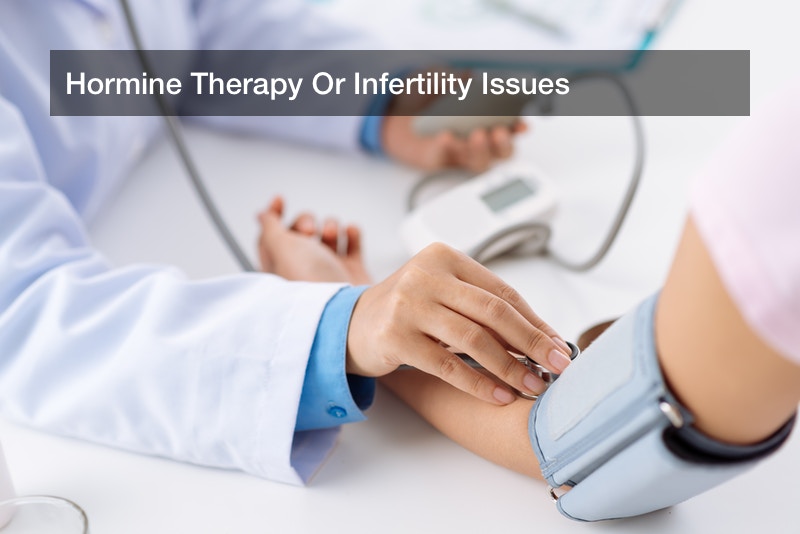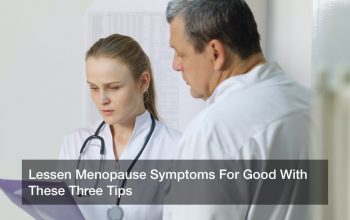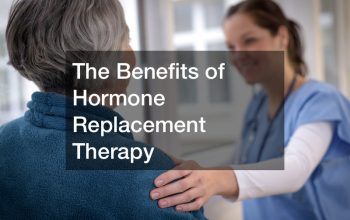Hormine Therapy Or Infertility Issues

Women’s health covers a number of topics unique to the female sex, such as infertility issues based on their oocytes (egg cells), fallopian tubes, or their ovaries. In other cases, women’s health involves visiting anti aging clinics and getting anti aging therapy with estrogen replacement treatment. Women naturally produce estrogen and oxytocin in their bodies, and men and women alike derive much of their natural behavior and tendencies from their brains’ wiring and hormones. Womens health may involve dealing with unpleasant effects of menopause, and menopause solutions may be involve bioidentical hormone therapy. Bioidentical hormone therapy is when hormones tailored to a patient’s own body chemistry are delivered into the body, and such bioidentical hormone therapy may produce some desirable results. Meanwhile, women in man-woman couples may visit infertility clinics if they are having unexpected trouble conceiving a child.
Bioidentical Hormone Therapy
Why might women undergo bioidentical hormone therapy like this? After all, menopause is a natural part of a woman’s life, and she may expect to undergo this process anywhere from her 40s to her early 60s or so, with a mean age of menopause being 51. Only rarely will women experience menopause as young as their 30s or as late as their mid or late 60s. Strictly speaking, menopause is a 24-hour process, and the lifelong phase after that is the post menopausal phase. There is a phase beforehand, too, known as the perimenopausal phase. Women may experience this phase for a few years right before menopause, and this may happen in their mid 40s or so. This involves a modified menstrual cycle that may be somewhat erratic as a woman’s bodily hormones change.
Women typically do not find anything to like about menopause, even though it is ultimately a natural and harmless process (other than making her infertile). Menopause may be accompanied by physical symptoms such as hot flashes, and a woman may experience difficulty with sleep as well as mood swings as her hormones and her brain’s wiring change. Many women report stress or depression due to this, and they may choose to undergo bioidentical hormone therapy early in menopause or during perimenopause to minimize the effects. They may visit their gynecologist and explain their interest in bioidentical hormone therapy, and at a hormone therapy clinic, women may have estrogen and/or oxytocin added to their bodies to limit menopause’s effects on their bodies and minds alike. This constitutes anti aging therapy, and many women report satisfaction with the results. In general, this therapy is most effective either during perimenopause or early in the post menopausal phase. If done later, it may have little effect. Finally, women who undergo bioidentical hormone therapy are strongly urged to visit a breast screening clinic regularly for mammograms and other exams, since increased estrogen increases their odds of developing breast cancer.
Visiting a Fertility Clinic
One or both members of a man-woman couple may visit an infertility clinic if they are experiencing unexpected trouble with conceiving a child. A number of factors may impair the fertility of one or both people, and they may undergo some exams to find out what the problem is. In either sex, ongoing and serious stress may lower fertility, as may tobacco use or drug abuse. In women, infertility may occur because her ovaries are failing to release an oocyte, or egg cell, to be fertilized. In other cases, a fertilized egg cell, or zygote, may implant itself on the fallopian tube rather than the uterine lining to form the placenta, and that will complicate the pregnancy and may even be dangerous. Meanwhile, men may experience infertility if they have suffered blunt trauma to their testicles or if their testicles have been exposed to radiation. Some men may have a genetic issue that results in a low sperm count or deformed sperm that cannot easily reach or implant themselves in an oocyte.
Patients at an infertility clinic may undergo testing to determine the problem’s cause, and solutions may vary from hormone treatment to surgery on reproductive organs all the way to in vitro fertilization (IVF). In some cases, the woman may make use of a surrogate mother, who will carry the child to term if the mother herself cannot have a safe and effective pregnancy.


